The Ethical Dilemma: Edward Snowden - Hero or Traitor?
VerifiedAdded on 2023/06/07
|16
|1129
|439
Presentation
AI Summary
This presentation analyzes the ethical dilemma surrounding Edward Snowden, examining whether he should be considered a hero or a traitor. It delves into Snowden's actions, including his exposure of classified information related to global surveillance, and presents arguments from both sides of the debate. The presentation applies deontological and utilitarian ethical principles to evaluate Snowden's behavior, considering the legal and ethical implications of his actions. It explores the perspectives of those who support Snowden as a hero, highlighting his role in exposing weaknesses in the surveillance system and the service he rendered to the citizens. It also presents the views of those who consider him a traitor, emphasizing the violation of laws, potential risks to national security, and diplomatic consequences. The analysis further includes a discussion of the positive and negative impacts of Snowden's actions, alternative approaches, and the ultimate conclusion that, based on the ethical frameworks, Snowden is a traitor. References from various sources support the arguments and conclusions presented.
1 out of 16
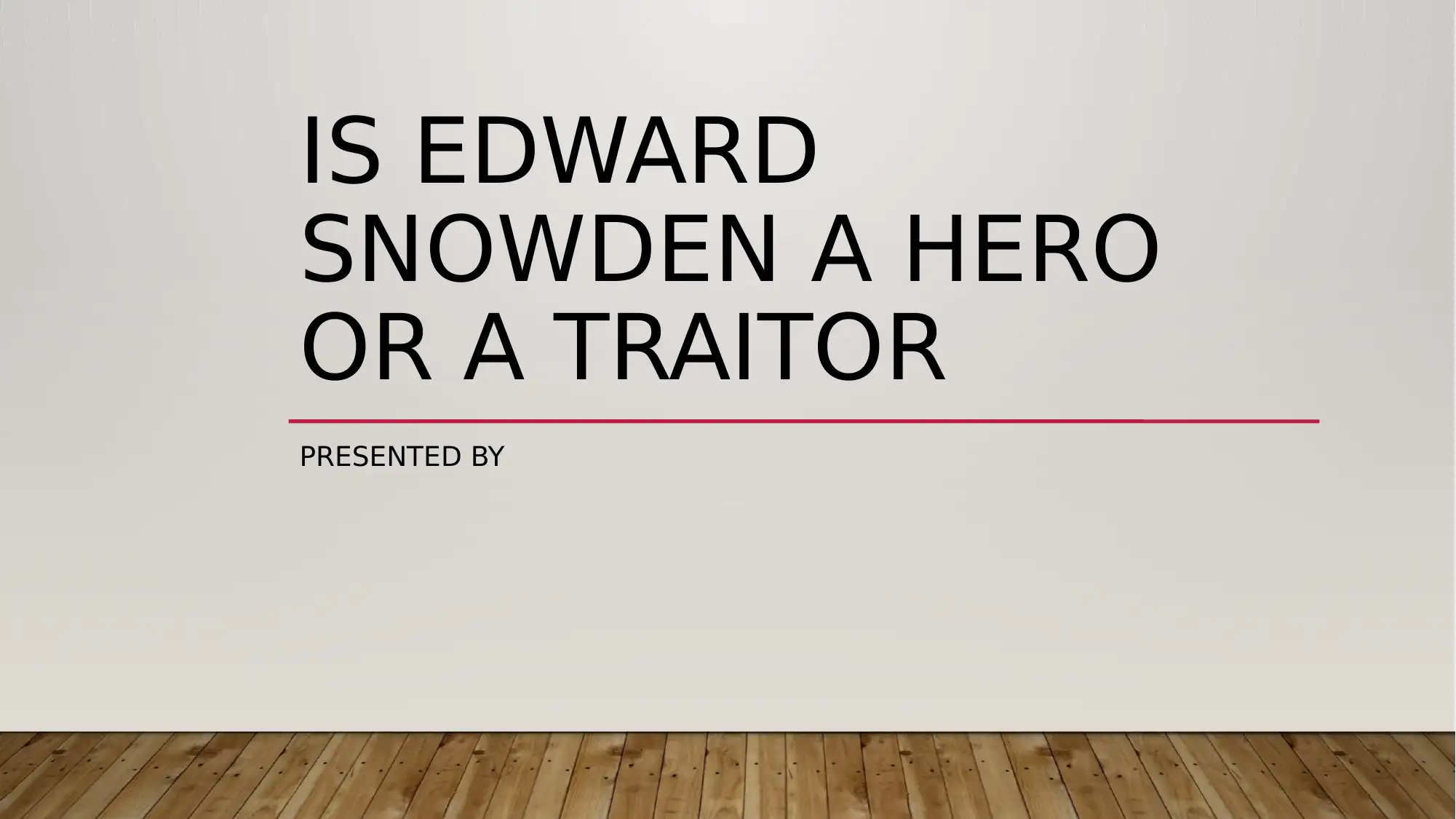
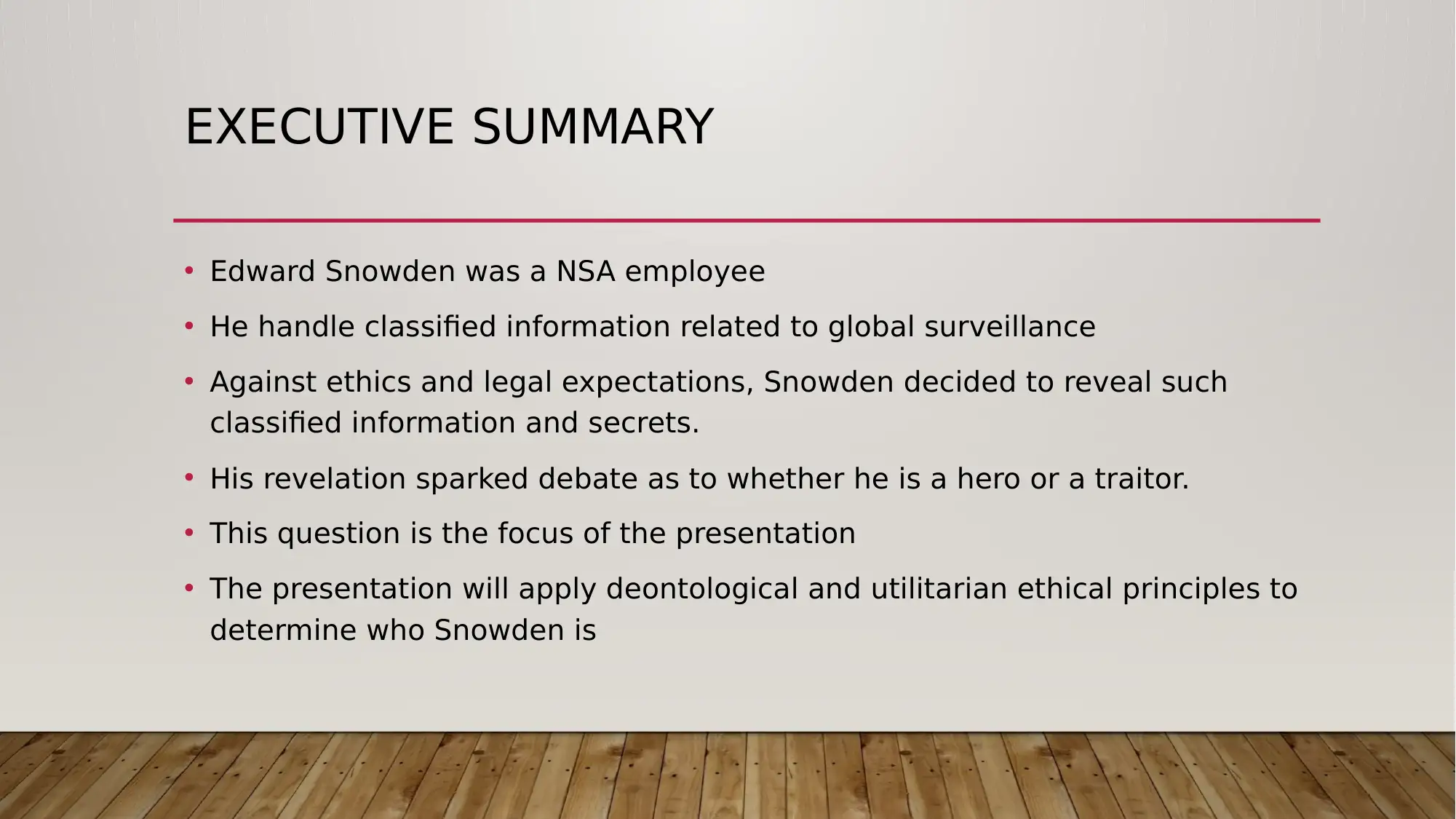
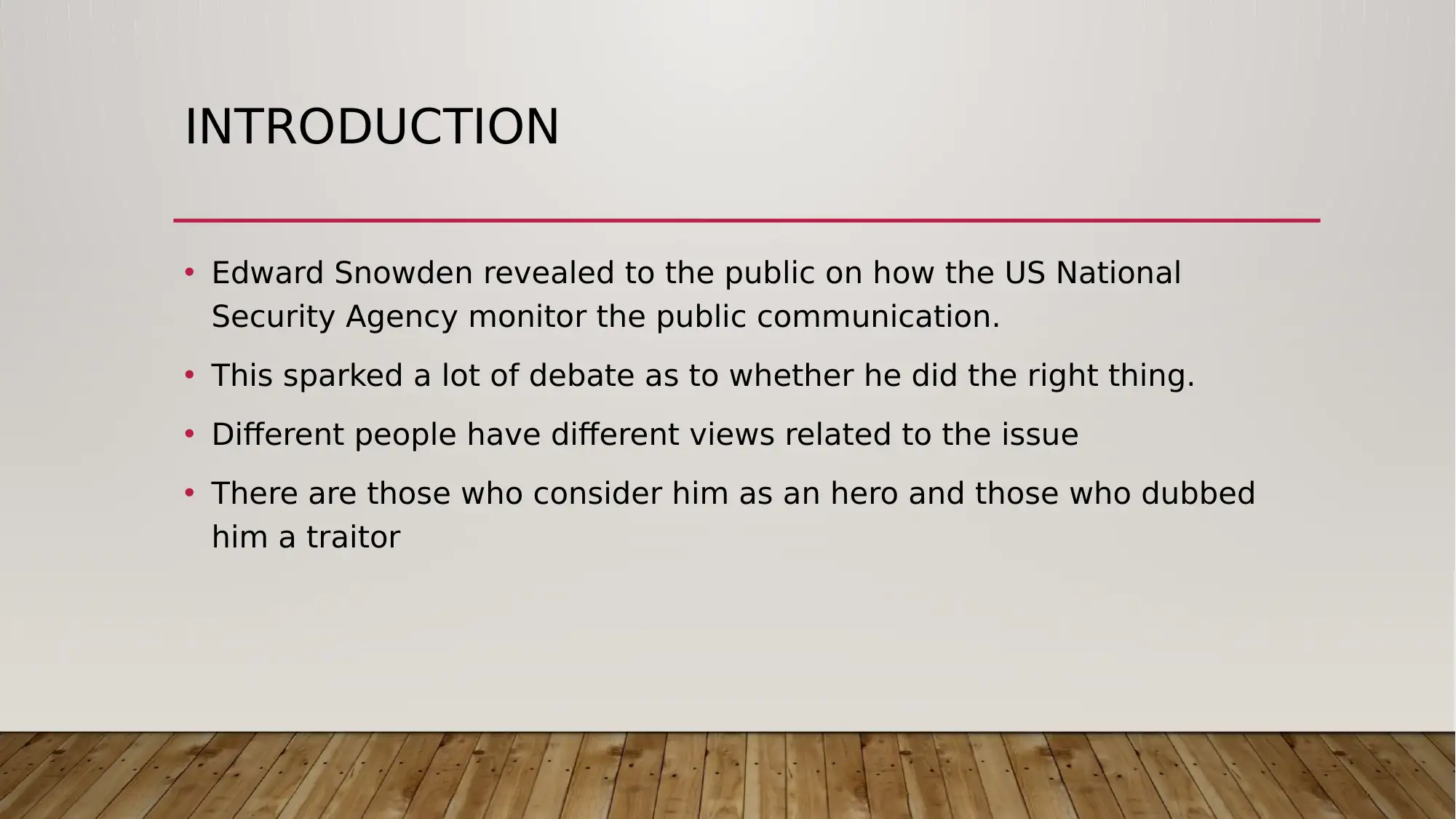

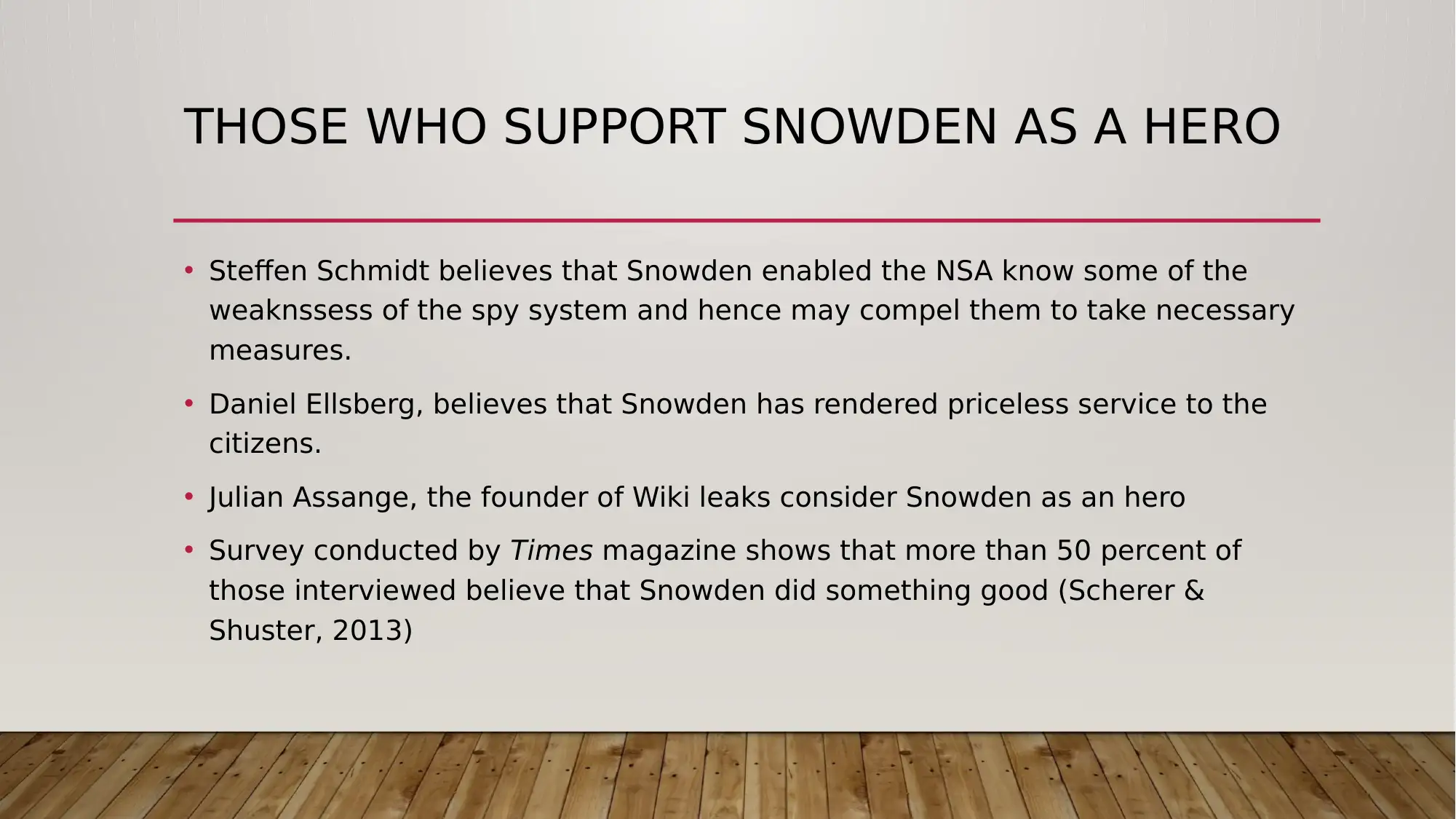
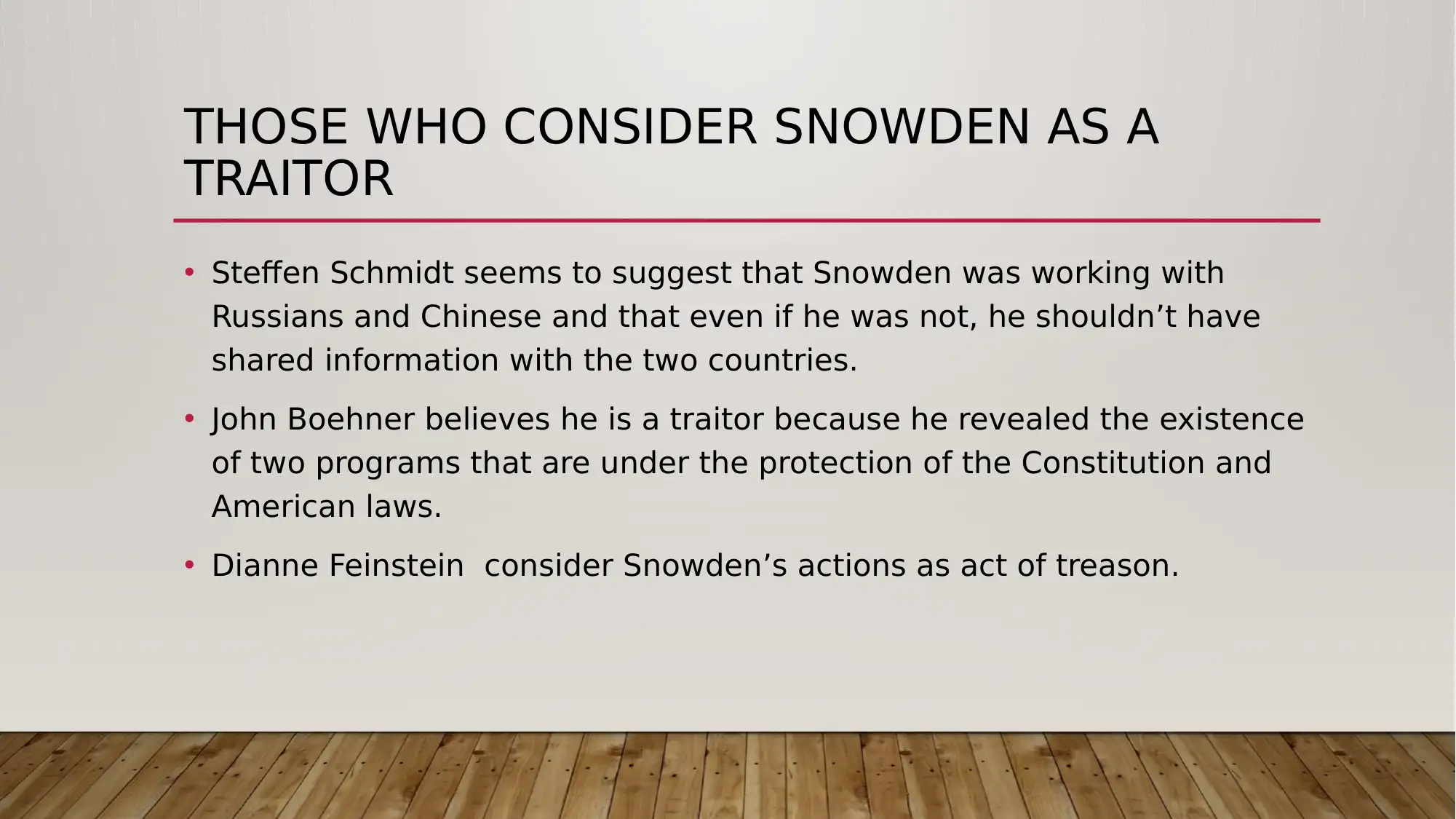
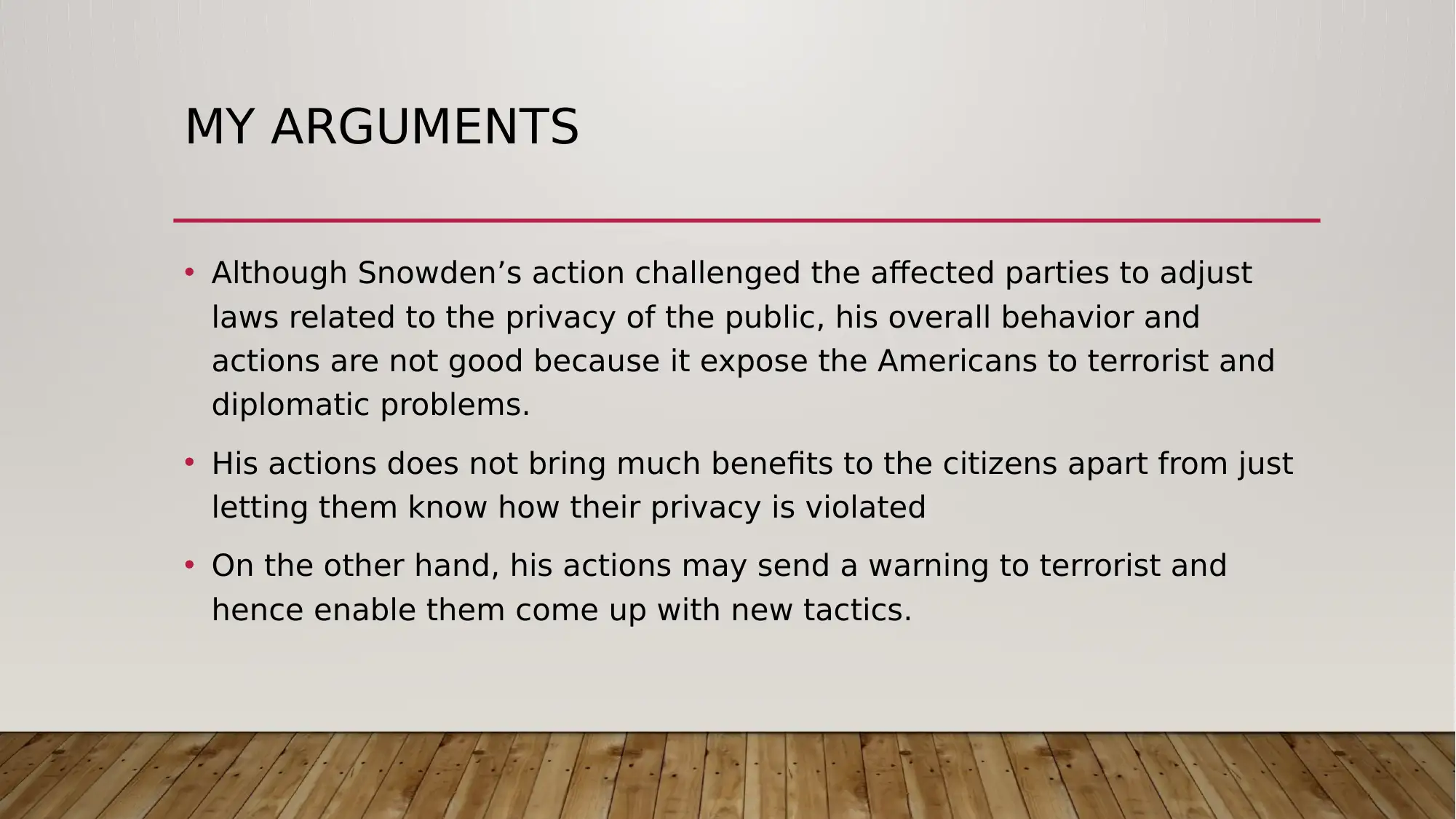
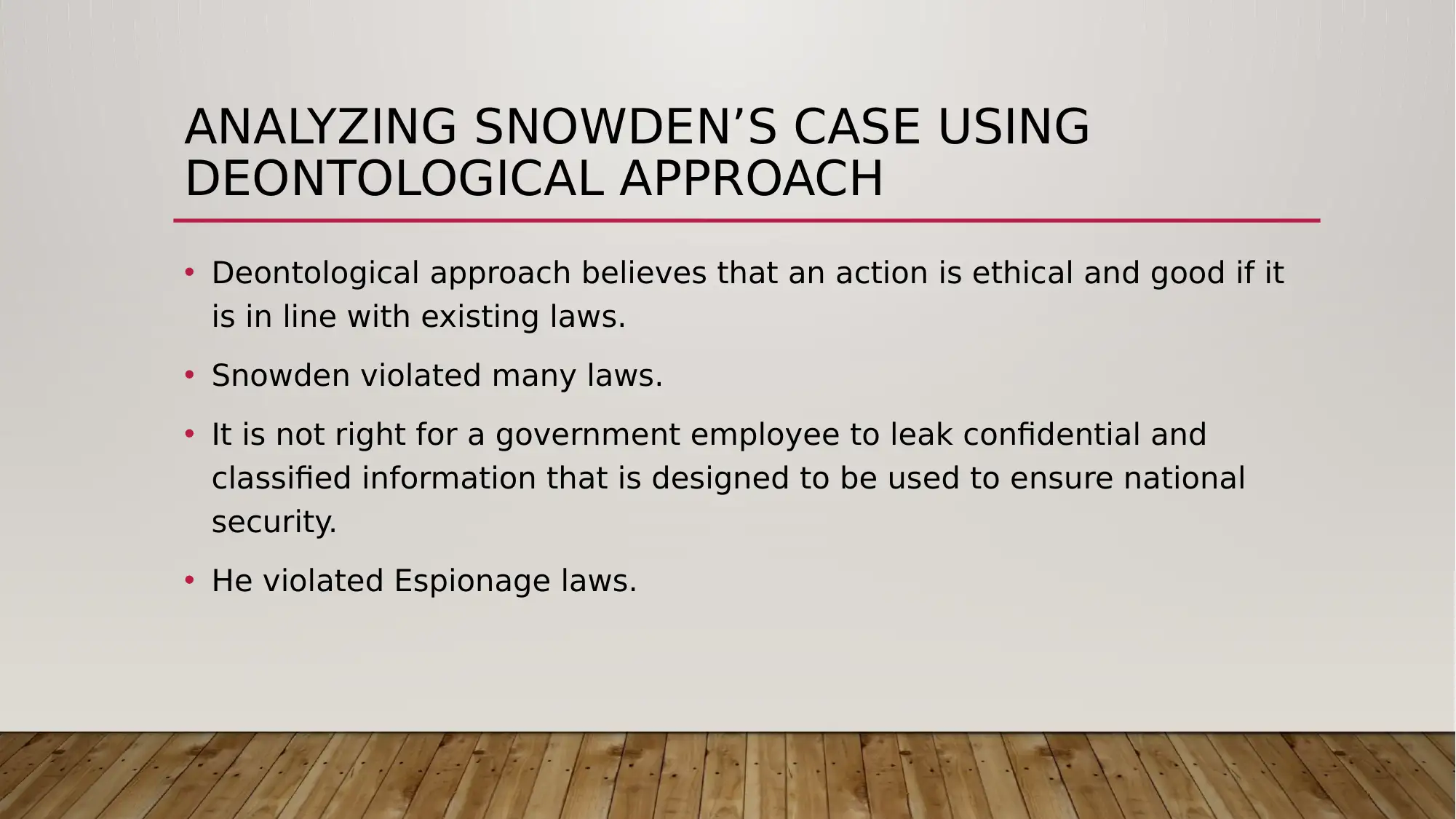
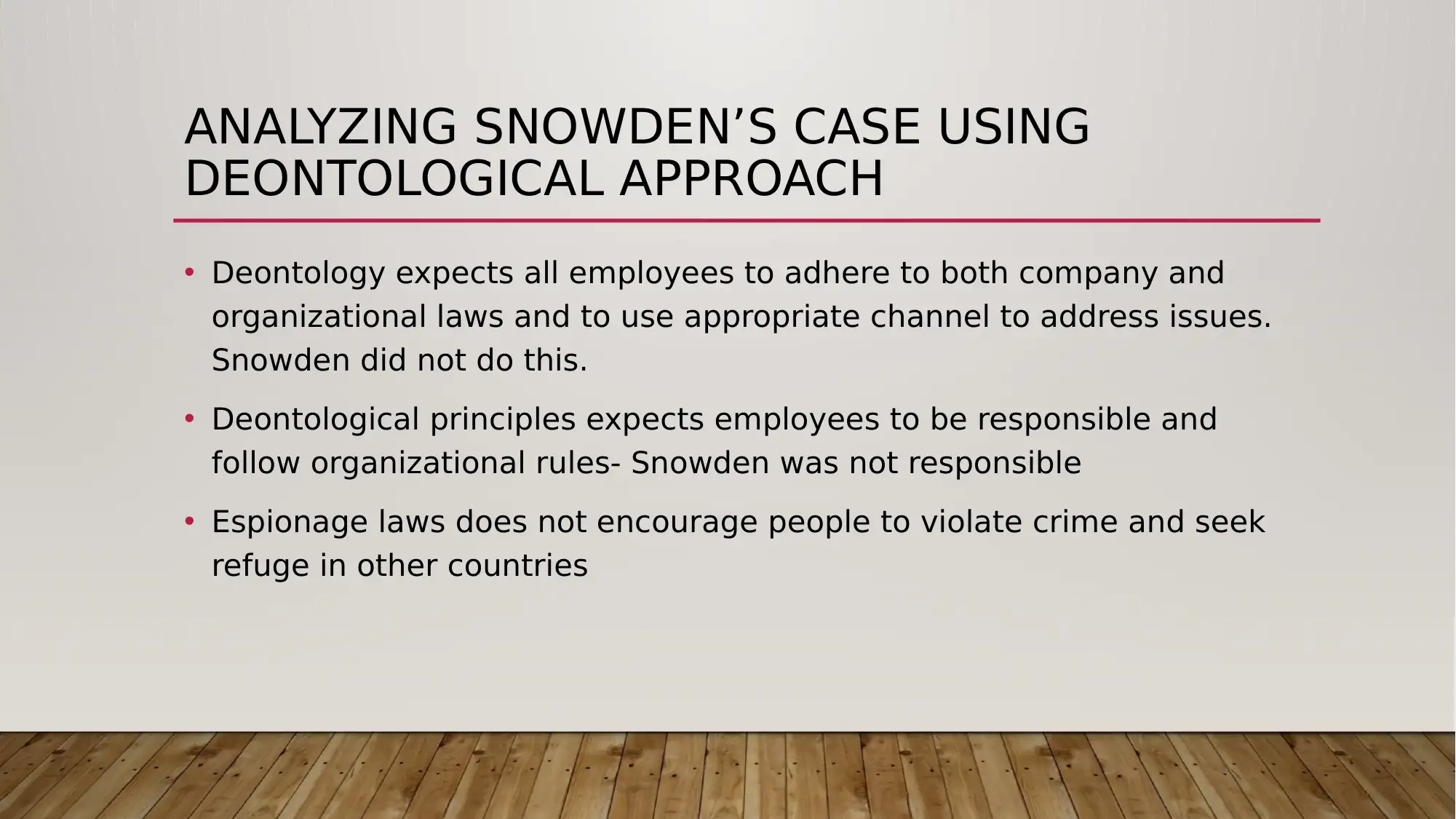
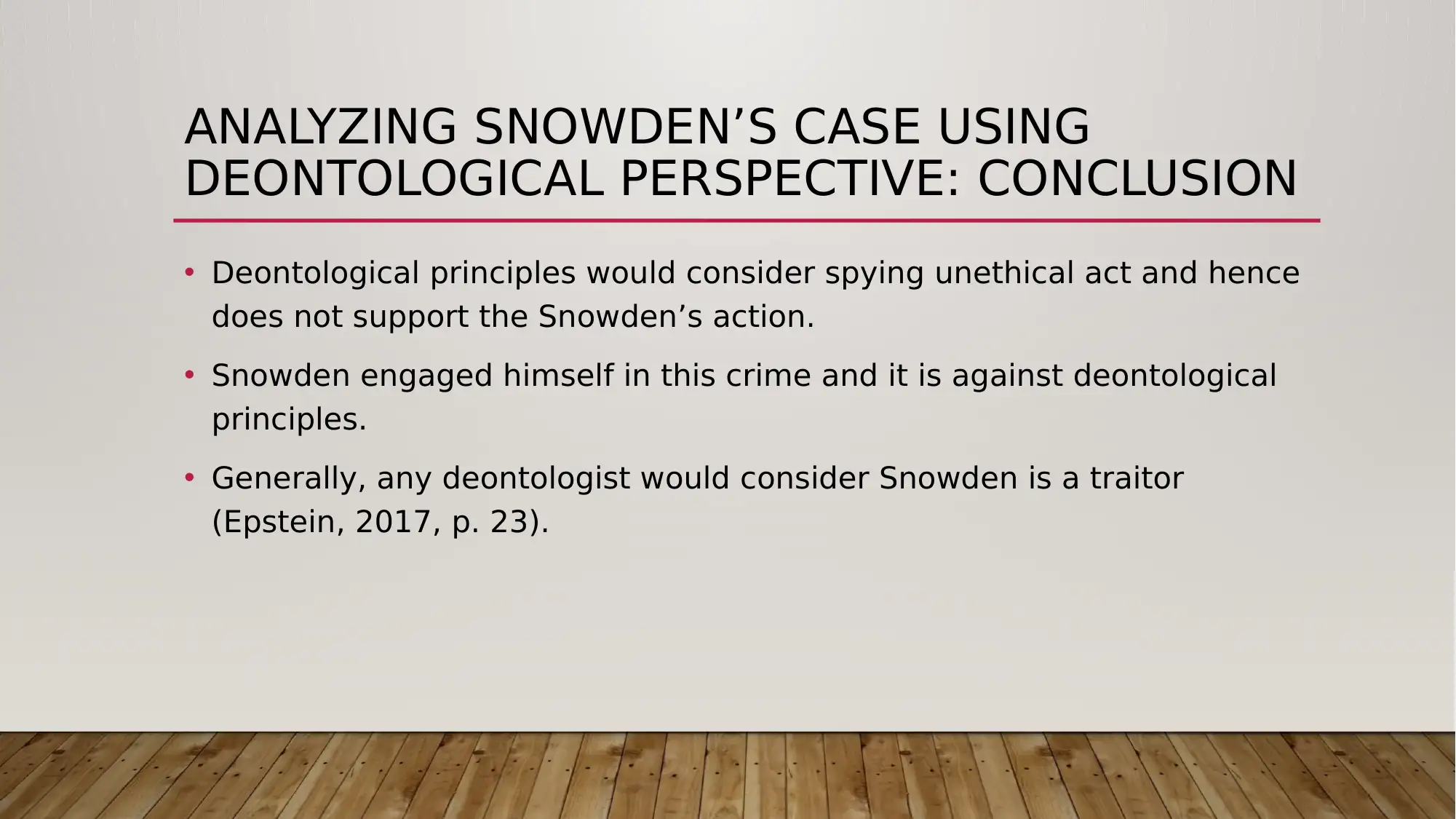
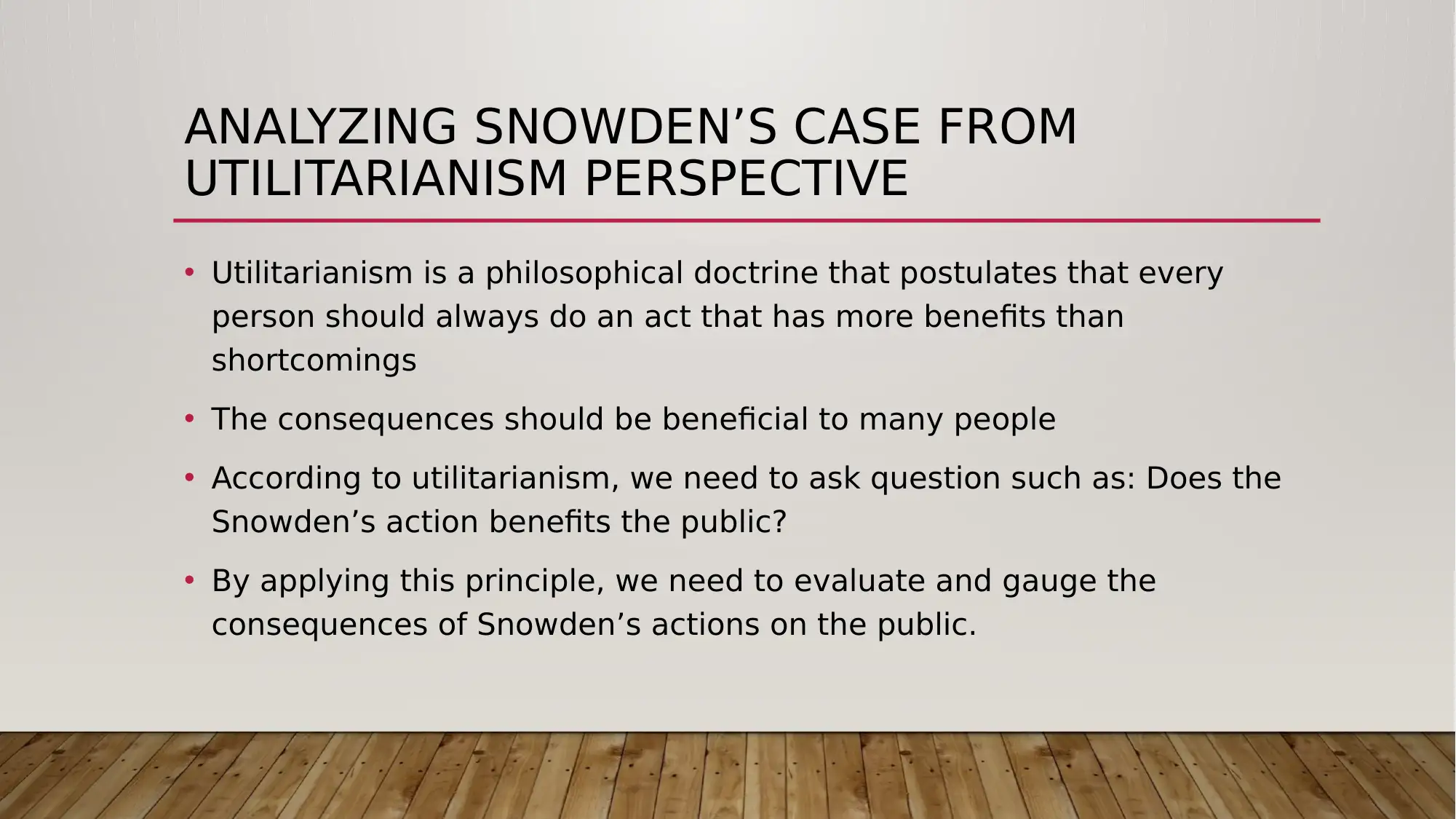
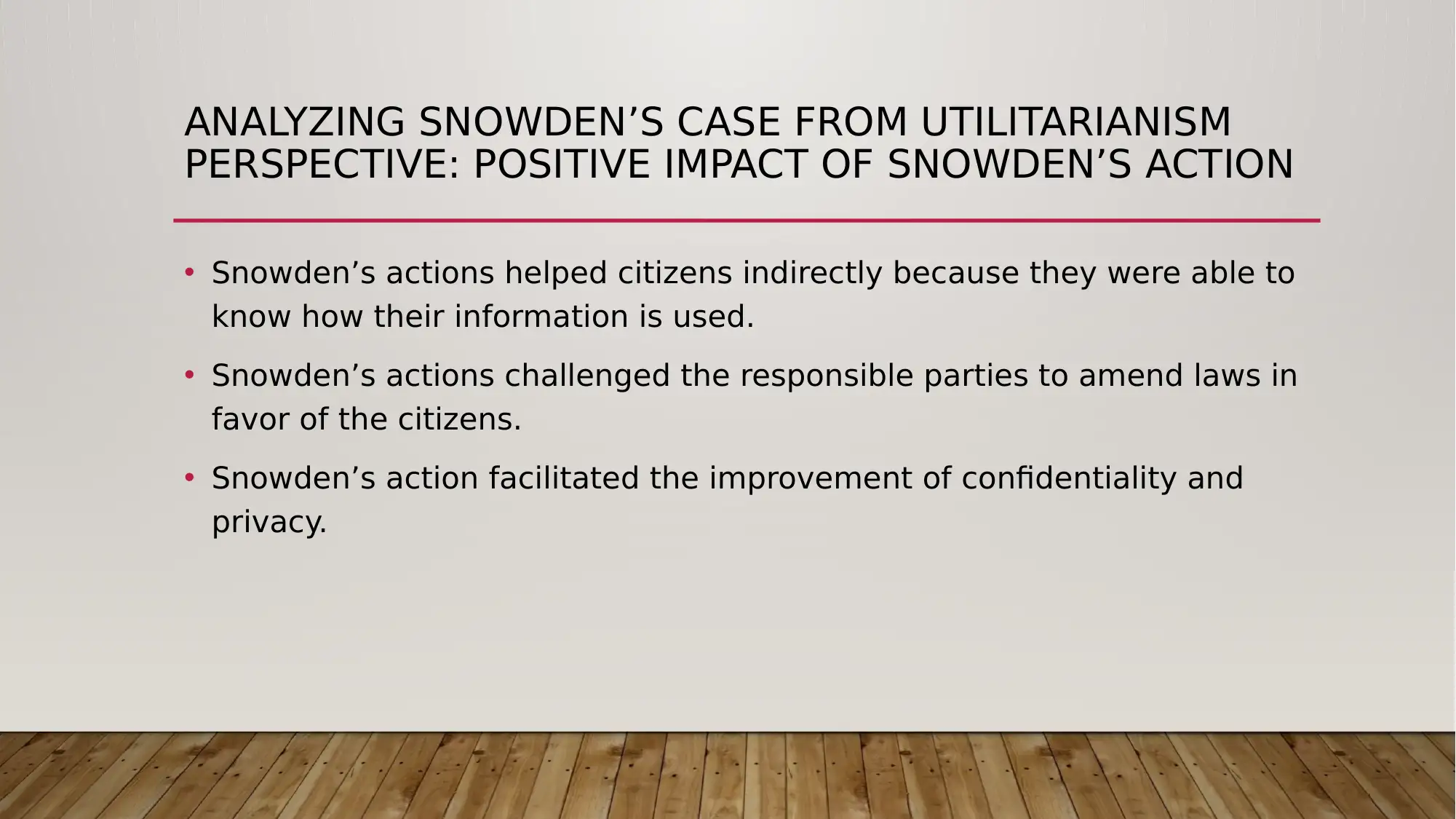
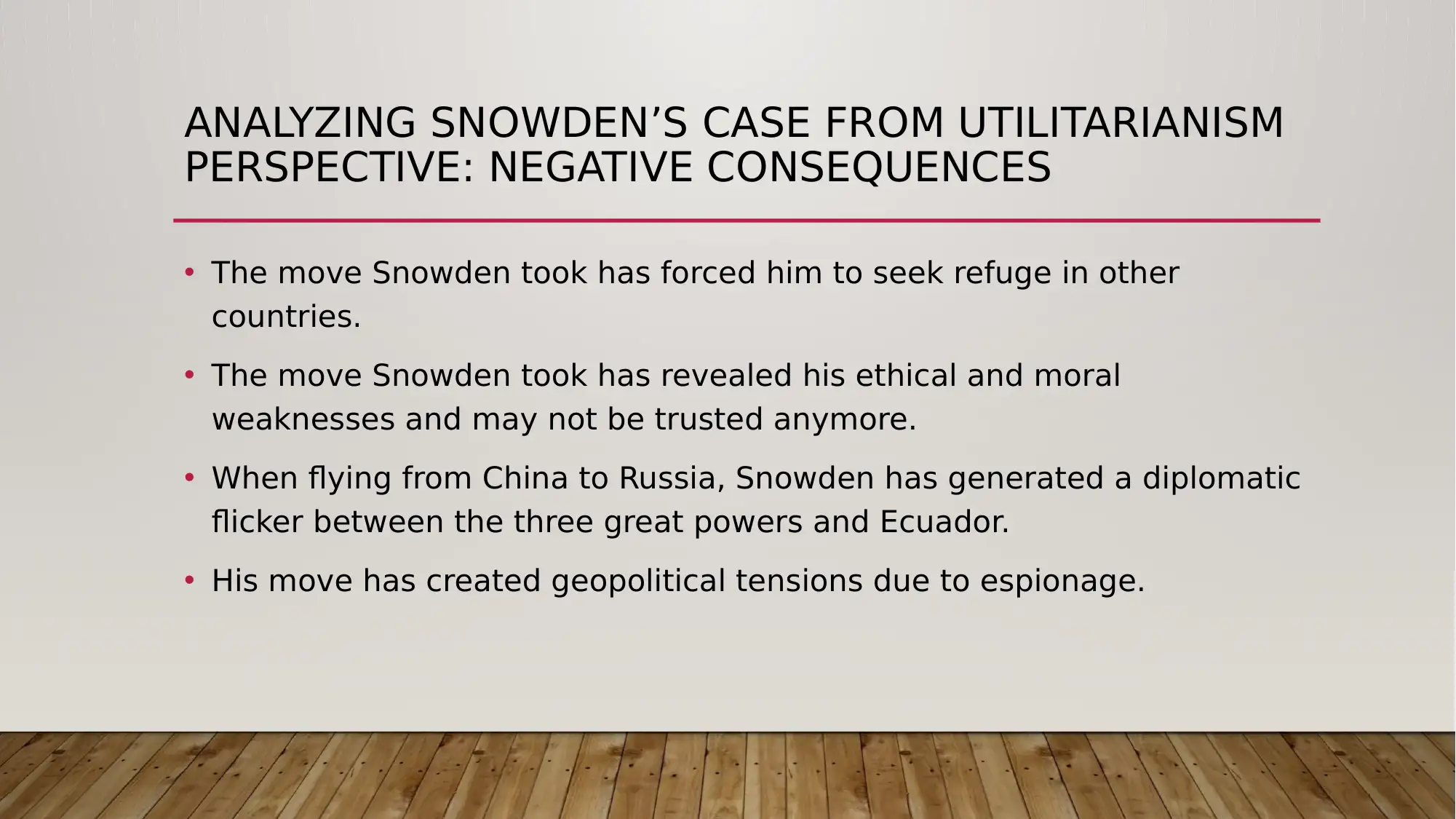






![[object Object]](/_next/static/media/star-bottom.7253800d.svg)